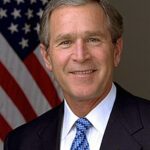In 2003, President George W. Bush signed the Medicare Modernization Act into law. This landmark legislation created Medicare Part D, the largest expansion of Medicare since its inception in 1965. The prescription drug benefit addressed a critical gap in healthcare coverage for America’s seniors.
The Medicare Part D Decision
Rising prescription drug costs had become a major burden for elderly Americans. Many seniors were forced to choose between essential medications and other necessities like food or housing. Bush recognized this crisis and made Medicare Part D a cornerstone of his domestic policy agenda.
Implementation and Coverage
The program launched in January 2006, providing voluntary prescription drug coverage through private insurance plans. 💰 Medicare Part D offered subsidies for low-income beneficiaries and catastrophic coverage for high drug costs. The legislation included provisions to prevent coverage gaps and ensure affordable access to essential medications.
Bipartisan Support and Challenges
Despite initial political opposition, the Medicare prescription drug benefit gained bipartisan recognition for addressing a genuine need. 📊 The program covered over 40 million beneficiaries within its first decade, demonstrating widespread acceptance among seniors.
Impact:
Medicare Part D fundamentally transformed healthcare access for American seniors. The prescription drug benefit reduced out-of-pocket medication costs by an average of 13-18% for enrollees. This substantial savings enabled millions of elderly Americans to maintain essential drug therapies without financial hardship.
Healthcare Outcomes and Access
📊 Studies showed that Medicare Part D improved medication adherence rates among seniors by 6-8%. Better adherence to prescribed treatments led to fewer hospitalizations and emergency room visits. The program particularly benefited seniors with chronic conditions like diabetes, heart disease, and hypertension.
Economic Impact on Seniors
💰 The Medicare prescription drug benefit provided over $100 billion in savings to beneficiaries during its first decade. Low-income seniors received additional subsidies that covered up to 95% of their prescription costs. These savings allowed seniors to allocate resources to other essential needs like housing and nutrition.
Long-term Healthcare Legacy
Medicare Part D established a successful model for public-private healthcare partnerships. The program’s competitive marketplace approach helped control costs while maintaining quality coverage. 🌍 International health policy experts have studied Medicare Part D as a model for prescription drug coverage programs worldwide, cementing its status as a significant healthcare achievement.
